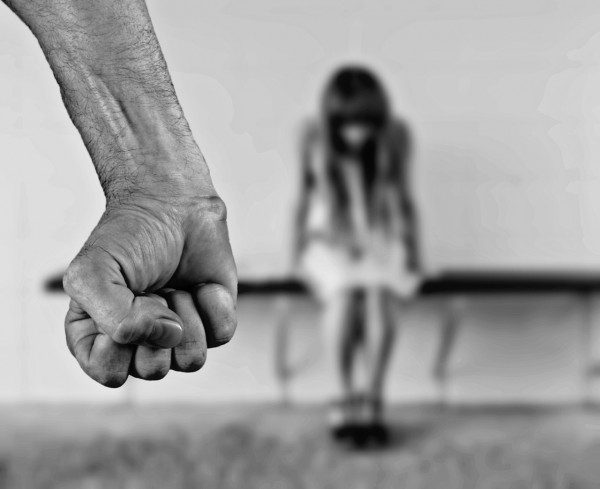Coronavirus Lockdown Has Led To More Cases of Domestic Violence

LOOK INTO: Permanent Stress Linked to Schizophrenia
Zoila, 24, no last name was provided by The Washing Post to protect her identity, said that the soft-spoken man she has moved in with became an "inescapable menace" when the quarantine happened. He would come home drunk at odd hours, violating coronavirus curfew, and verbally abusing her and threatening violence while she was pregnant.
Then one morning, he grabbed her by the throat, slammed her against the wall, and attempted rape. When she resisted, he began punching her and only stopped when he realized fluid had begun trailing down her leg. She feared a miscarriage but was able to give birth to a daughter in June.
The Threat of Domestic Violence Amidst Coronavirus
The coronavirus has led to imposing mandatory lockdowns in countries worldwide as a way to curb the spread of the disease.
For people who are victims of domestic abuse, this means being trapped at home, isolated from people that can help them, and not having access to resources available to them.
Numerous women and children around the globe have associated the coronavirus as a double plague. Going outside would mean risking their health if they catch the deadly virus, on the other hand, staying in the confined spaces of their home would increase their peril of dealing with violent abusers.
Results shown in official statistics are mixed. While there are countries that reported a rise in abuse cases during a pandemic, some countries, including the United States, have fallen. However, according to people who usually deal with abuse victims, these numbers may not be accurate. Since most schools are closed, teachers and other social workers may have a hard time identifying signs of abuse and reporting them.
Katie Ray-Jones, the CEO of the National Domestic Violence Hotline, said that since domestic violence is rooted in power and control, the current situation renders people powerless and out of control. For someone who cannot manage the feeling of being in a lack of control, their tendency is to take it out on their victims.
With the health care system becoming overloaded due to immediate responses focus on coronavirus, victims of abuse have difficulty in seeking help. There are also victims who had experienced physical abuse and needed medical attention, however, chose not to do so due to the fear of catching COVID-19.
Many victimized women also chose not to live with their parents, aside from travel restrictions, there is also the fear of exposing elderly people to the virus.
Because the coronavirus crisis has a big effect on future unemployment, it makes victims less likely to leave abusive relationships. According to Ray-Jones, leaving an abusive partner means saving enough money for an emergency, and this will become difficult if victims lose their jobs.
The lockdowns will end eventually. But the danger of confinement is likely to intensify. Studies show that abusers are more likely to become murderous following major setbacks experienced.
With COVID-19 still far from a cure, such crises are more likely to increase in frequency.
RESEARCH ABOUT: Rice U. Study: Disgust Leads People To Lie and Cheat; Cleanliness Promotes Ethical Behavior
Check out more news and information on Violence on MD News Daily.
Sep 07, 2020 11:06 AM EDT





